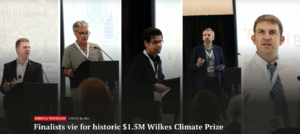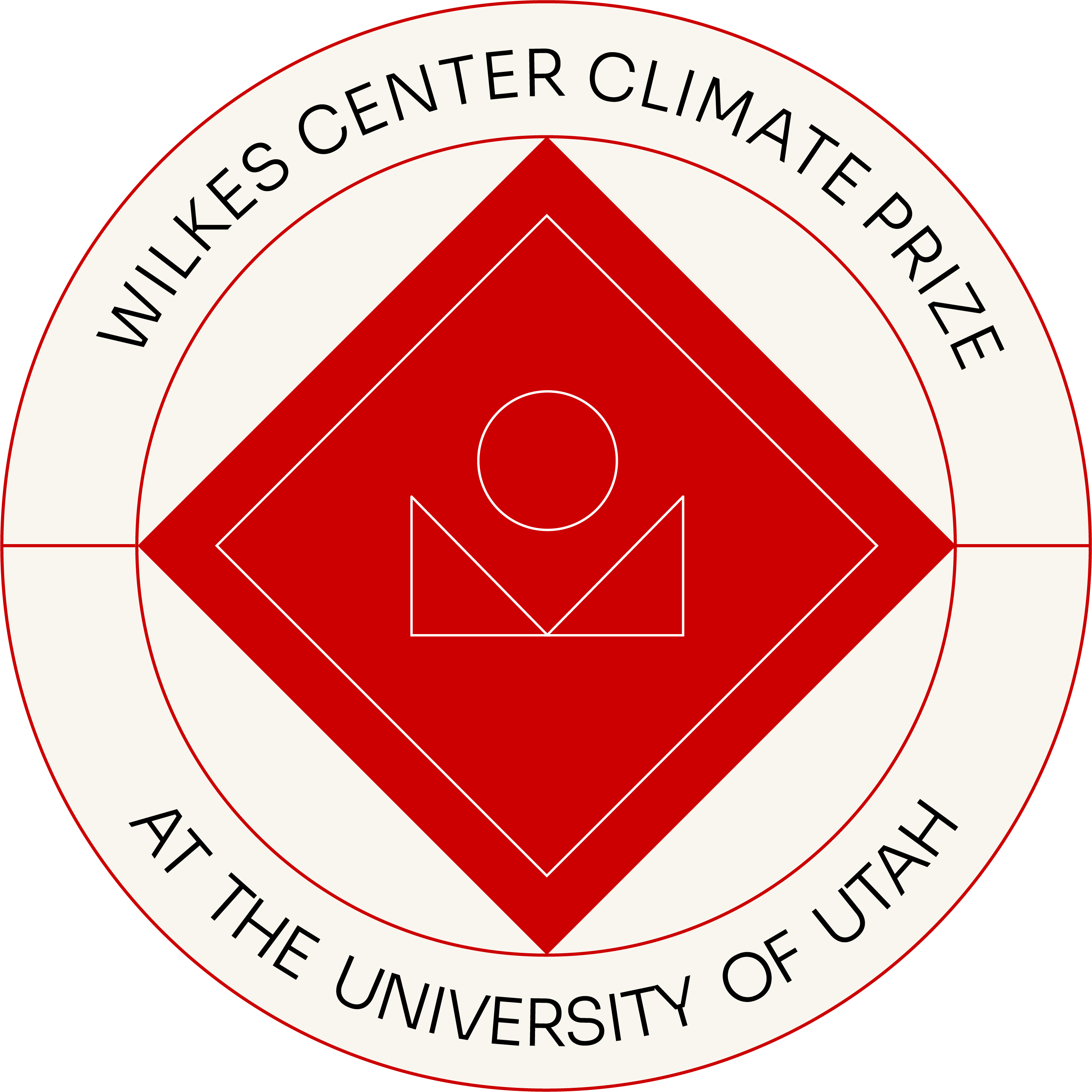
What could you do for climate change with $1.5 million dollars?
2023 Wilkes Prize Announcement
Lumen Bioscience wins historic $1.5M Wilkes Center Climate Prize
Lumen Bioscience is the inaugural winner of the $1.5 million Wilkes Center Climate Prize at the University of Utah. The Seattle-based biotech company beat 77 international teams with their proposal to drastically reduce methane emissions from dairy and beef cattle using a patented mixture of enzyme proteins. William Anderegg, director of the U-based Wilkes Center for Climate Science & Policy, made the announcement at a press conference on Sept. 22, 2023, at the Natural History Museum of Utah. The Wilkes Climate Prize at the University of Utah is one of the largest university-affiliated climate prizes in the world and aims to push through potential breakthroughs with a one-time, unrestricted cash award.
Learn about the Finalists for the 2023 Wilkes Center Climate Prize at the University of Utah
A protein-rich bean that evades agricultural emissions? Pepto for cows? Connect the ocean to the power grid? Smart windows on every building? Trees that reduce poverty and save the rainforest?
We need bold thinkers with audacious ideas to help mitigate the impacts of climate change. Often, the most unconventional projects have the hardest time getting funding. At $1.5 million, the Wilkes Center Climate Prize at the University of Utah is one of the largest university-affiliate climate awards in the world. The Wilkes Center for Climate Science and Policy in the U’s College of Science will administer the prize, funded by a cross-section of Utah-based organizations and industries. A panel of respected climate leaders reviewed 77 international proposals and identified five projects representing the most innovative ideas to address the impacts of climate change. The winner of the historic prize was announced on Sept. 22, 2023.
Read more about the Wilkes Prize Finalists HERE. (August 30, 2023)
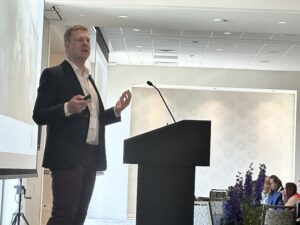 Fred Geyer, presenter, Mike Hands, tropical ecologist and founder and director of The Inga Foundation
Fred Geyer, presenter, Mike Hands, tropical ecologist and founder and director of The Inga Foundation
Slash-and-burn is a subsistence farming method where trees are cut down and burned to clear land for crops. 300 million farmers worldwide practice it, which releases 2 billion tons of CO2 into the atmosphere per year. It devastates rainforest ecosystems and makes the land infertile, but is necessary for these families to produce food.
The Inga Foundation has developed a scientifically proven system called Inga Ally Cropping that creates farms that mimic the natural behavior of the rainforest using a nitrogen-fixing species of tree called the Inga. The program addresses the massive climate issue and creates the opportunity a dramatic reversal of fortunes for rural farmers struggling in poverty.
Since 2012, the foundation has worked with 450 Honduran families to plant the trees along the contours of land in rows, the roots prevent soil erosion and replenish nutrients. They then plant the crops between the Inga rows. No pesticides, insecticides or chemical fertilizers are needed. Farmers produce organic cash crops to sustain their families and sell to generate income, and it allows farmers to repeatedly cultivate on the same land without moving and destroying more forest.
In year 11 of the program, the Honduran families have sequestered 700,000 tons of CO2. They project that just this one project in Honduras will sequester nearly 3 million tons on an annual basis by 2030.
Over decades, Mike Hands has systematically isolated the most effective system for regenerating soil nutrients. They’ve proven the method in with families in Honduras, which have used it to bring themselves out of poverty. They hope to scale it up across Honduras, Central America, and then across the world.
“The trees function as to restore life to the soil. And the trees are retaining retrieving recycling essential plant nutrients, particularly the phosphorus,” said Mike Hands, tropical ecologist and founder and director of The Inga Foundation. “We’ve proven that we can transform the rural economy of the tropical zone in Honduras. It can be replicated in any of the rain forests across the world.”
Visit Inga Foundation to learn more.
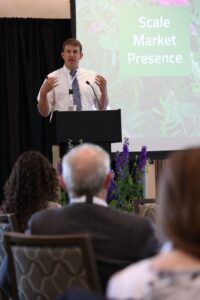 Photo: Brandon Schlautman, Lead Scientist, Perennial Legumes Program, The Land Institute presenting at the Wilkes Summit.
Photo: Brandon Schlautman, Lead Scientist, Perennial Legumes Program, The Land Institute presenting at the Wilkes Summit.
Agriculture contributes 4.266 gigatons of annual carbon emissions each year, which results from the 1.1 billion hectares of annual grain crops grown around the world, the first finalist to present said. Schlautman and The Land Institute’s goal is to create perennial grain crops that mimic the carbon and nutrient cycles of natural ecosystems, such as grass prairies, that they estimate would reduce total global carbon emissions by 15-30% per year.
Schlautman led the effort to breed a perennial bean, called the Baki bean, which means “eternal” in Turkish. The high protein, high fiber food has similar nutrient content of a garbanzo bean and could serve as a competitive plant-based protein source. Typical annual crops die after harvest and require farmers to replant every year. The atmospheric carbon dioxide stored in the crop’s plant tissues go back into the atmosphere as they decompose. In contrast, perennial crops maintain a live, large root system that remains undisturbed from plowing, continues to store carbon and other nutrients in the soil, and reduces the amount of water needed.
Schlautman said that the Wilkes Climate Prize funding would allow his team to increase the Baki bean’s market presence, expand its acreage in the U.S., and understand and scale its carbon-saving potential.
“By sequestering carbon with this new hardware, improving soil structure and requiring fewer resources, [the Perennial Baki Bean] has the potential to transform agriculture,” Schlautman said closing his presentation.
Visit The Land Institute to learn more.
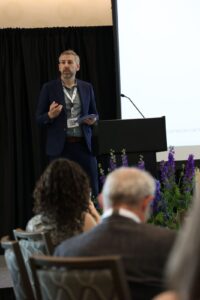
Photo: Tim Mundon, CTO, Oscilla Power presenting at the Wilkes Summit, May 16th.
By 2050, it’s estimated that 44% of our electricity will be produced with fossil fuels, nowhere near the 100% renewable energy target. This is mostly due to addressing the variability of the time of day and year when solar and wind generate the most electricity. While energy storage solutions can smooth out the transitions between energy production and usage, storage units don’t produce power and only increases the cost of energy.
“Ideally what we need is another renewable resource that can fill in the gaps when solar and wind are just not generating. We believe that resource is ocean waves. Seasonally, waves are an outstanding complement to solar and wind.” said Mundon. He gives the example for California energy production of seasonal solar, wind and waves. “Solar and wind peaks in the summer, while wave peaks during the winter…and don’t forget that waves are also more consistent on a daily basis than both solar or wind.”
Ocean wave energy has the potential to rise to 50% of global electricity demand, but efficiency, survivability and cost are the main reasons why it hasn’t been adopted. Oscilla Power has developed the Triton, a one-megawatt wave energy converter that would be installed in an array, similar to wind turbines using far less area and almost zero visibility. The high-efficiency wave energy capture system generates power using relative motion two bodies—the different motion between a floating hull and a suspended underwater ring. It’s unique three-tendon architecture translates every wave motion into mechanical energy used to generate electricity. They’ve shown that it can survive the most extreme ocean conditions. Their testing and design addresses each of the three barriers to wave energy that they say can ultimately be competitive with most solar and wind energy.
Visit Oscilla Power to learn more.
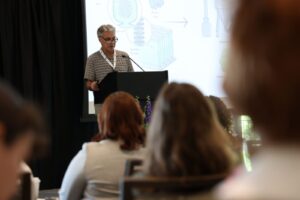 Dr. Jim Roberts, (pictured) co-founder and CSO, Lumen Bioscience, Mark Heinnickel, principle scientist, Lumen Biosciences
Dr. Jim Roberts, (pictured) co-founder and CSO, Lumen Bioscience, Mark Heinnickel, principle scientist, Lumen Biosciences
At least 25% of today’s global warming is driven by methane from human actions. Methane is 80 times more potent than CO2, and reducing methane emissions would have an immediate impact on warming. The single largest source of methane is livestock—their digestive systems produce methane due to a type of archaea called methanogens. These microorganisms produce methane that livestock expels as farts.
Lumen Bioscience discovered a way to destroy the methanogens by genetically engineering another microbe called spirulina. Spirulina is a complete protein and has been grown for centuries in Africa, Asia, Central and South America, and more recently on a large scale as food for humans and animals. Lumen Bioscience co-founders figured out how to add genes to spirulina that produce proteins to make medicines, using only light as an energy source.
They engineer it using bacteriophage, which are viruses that are high specialized to infect one type of bacteria using proteins called lysin. Like all other microorganisms, there are phages that attack methanogens. Lumen Bioscience identified the gene that produces methanogen-killing lysin and inserted it into a strain of spirulina. Because lysin is very specific, it only attacks methanogens, and leaves spirulina and livestock cells alone. Their research shows that one type of methanogen lysin kills nearly all of the methanogen in 30 minutes.
Their goal is to dose all dairy cows and beef cattle by 2040, which they estimate would reduce methane emissions from livestock by 40%. To achieve this, they estimate they’d need 1,540,000 tons a year of spirulina, which requires a spirulina pond that is 14 x 14 miles in area that would be spread out around the world via local spirulina farms.
They hope to build a potent cocktail with the most potent spirulina strains, demonstrate efficacy in dairy and beef cattle, and establish a pathway for large-scale outdoor cultivation of lysin-producing spirulina.
Visit Lumen Bioscience to learn more.
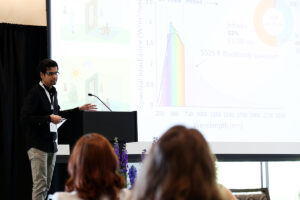 Dr. Tamal Roy (pictured), Swiss Institute of Technology, Constantine Megaridis, director, Micro/Nanoscale Fluid Transport Laboratory, University of Illinois, Chicago
Dr. Tamal Roy (pictured), Swiss Institute of Technology, Constantine Megaridis, director, Micro/Nanoscale Fluid Transport Laboratory, University of Illinois, Chicago
Residential and commercial buildings use about 30% of the total end-use energy consumption in the U.S. End-use refers to energy in a usable form by the consumer— electricity, gasoline and natural gas. Half of the energy consumption is from heating, ventilation and air conditioning (HVAC) systems. They estimate that energy used in buildings will triple by 2050.
During the winter, you want sunlight to come through the window to heat the room. In the summertime, you’d like the light to come in, but not the heat. Roy and Megaridis developed a window coating made of nanomaterials based on a smart window approach. The coating on the windows responds to the outside temperature. Existing technology works like this: On cold days, the window is transparent so that visible and heat-causing infrared solar radiation can pass through. On hot days, the coating blocks infrared radiation and heat, but still allows visible light to pass through. But this selective technology only works at 155°F. Roy and Megaridis developed a new nanomaterial that can block heat close to room temperature. At 72°F light and heat can pass through. At 86°F, the special nanoparticles will activate and absorb the infrared energy and block the heat.
“If you coated 10% of commercial buildings in the U.S., the energy savings by 2050 would be the equivalent of removing six natural gas power plants,” Roy said during his presentation.
As climate change will cause temperatures to rise in the U.S., smart glass will be essential to reducing emissions from cooling buildings. Their team hopes to establish the proof-of-concept, prototype the technology with small-scale demonstrations, and implement at larger scales.
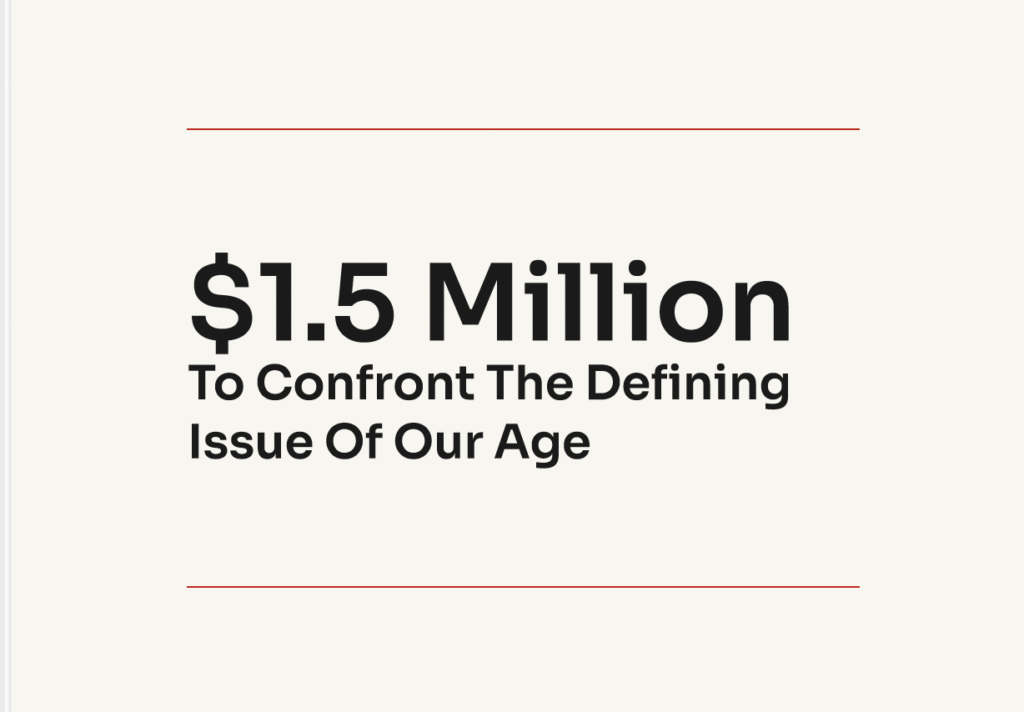
Process & Review Timeline:
- Phase I:
First round submissions Due January 31 - Phase II:
Second Round applicant proposals Due March 8, 2023 - Phase III:
Finalists pitch in-person at Wilkes Climate Summit, May 16-17, 2023 - Awards:
Award ceremony in September 2023
Wilkes Climate Prize Selection Committee
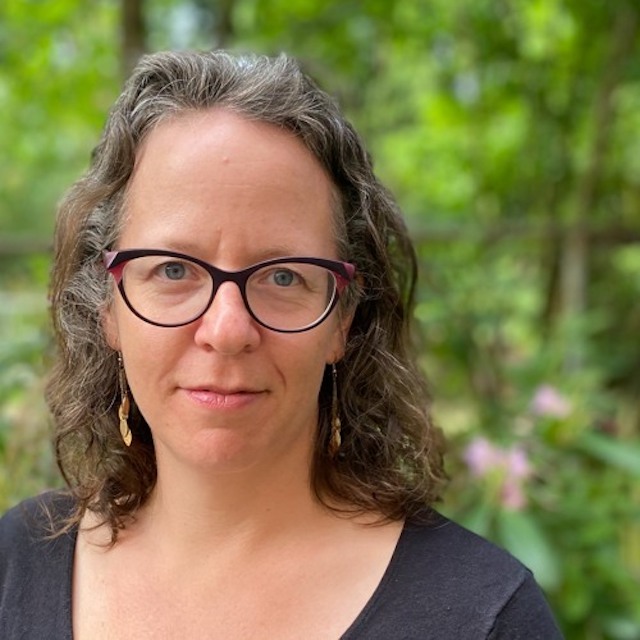
Kimberly Nicholas
Sustainability Scientist at Lund University, SwedenKimberly Nicholas
Sustainability Scientist at Lund University, Sweden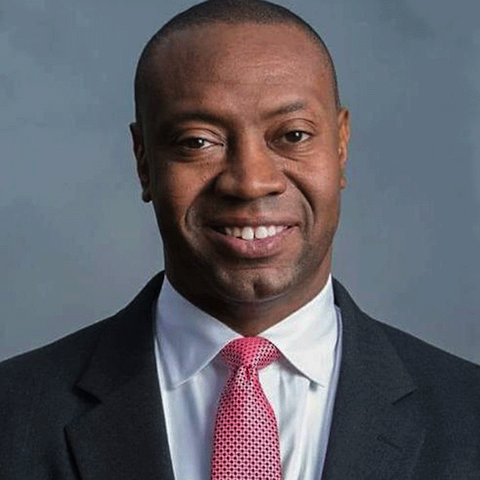
James Marshall Shepherd
Georgia Athletic Association Distinguished Professor, University of GeorgiaJames Marshall Shepherd
Georgia Athletic Association Distinguished Professor, University of Georgia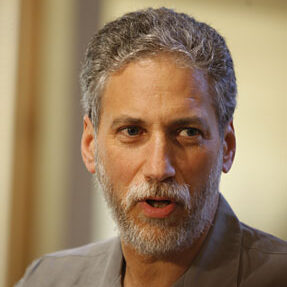
Steven Hamburg
Chief Scientist, Environmental Defense FundSteven Hamburg
Chief Scientist, Environmental Defense Fund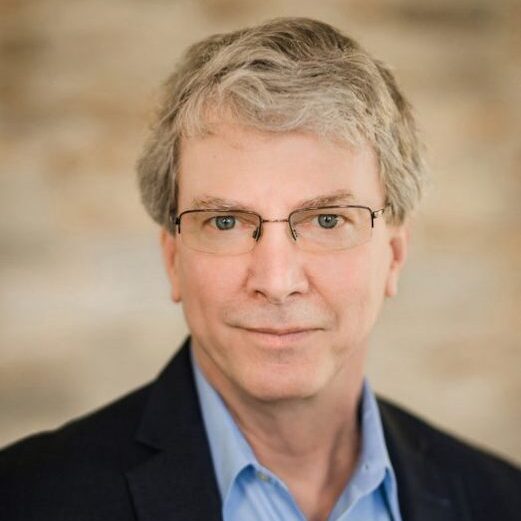
Walt Reid
Vice President, Environment and Science, Packard FoundationWalt Reid
Vice President, Environment and Science, Packard Foundation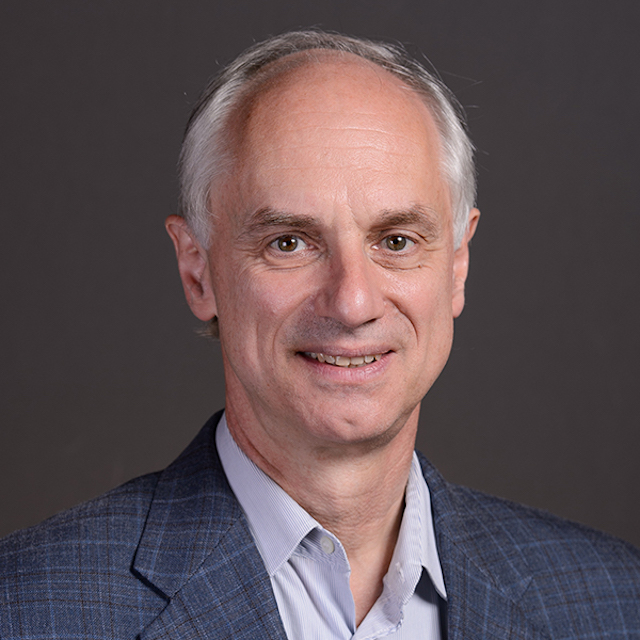
Klaus Lackner
Director, Center for Negative Carbon Emissions, Arizona State UniversityKlaus Lackner
Director, Center for Negative Carbon Emissions, Arizona State UniversityKey considerations for each criteria.
Scalable impact:
- How much greenhouse gases (MT CO2-equivalent) could be avoided from emissions or removed from the atmosphere per year in the immediate future (e.g. 2023-2025) and near-term future (e.g. around 2030)?
- What are the potentials for scaling up over the 2030-2050 timescale?
- How will the Prize lead to a transformative change in this sector?
- What is the estimated permanence of these emissions reductions or removals and what is the confidence for these estimates?
Feasibility:
- Are there demonstrations of feasibility existing? At what stage? Where?
- What is the current cost per MT CO2-equivalent? What are future estimated costs by approximately 2030?
- Explain why your team has the relevant expertise and structure to succeed.
- What are key barriers and what plans are in place to overcome barriers, constraints, risks, or trade-offs with scaling up the solution?
Co-benefits
- Will the proposed solution lead to co-benefits to communities, economies, or ecosystems?
- What is the potential for negative consequences (e.g. on communities, economies, or ecosystems) and what are solutions to mitigate them?
What format should I use to submit my pitch?
Your pitch should by typed directly into the form on the application portal. Many applicants find it easiest to type their proposal in a word document and copy/past into the form.
Are there restrictions on the use of Prize funds?
Other than a 15% cap on overhead (including indirect or F&A costs), there are no other restrictions on the use of the funds.
Is there one grand prize, or are there also smaller prizes for finalists?
There is only one grand prize to be awarded.
When will I hear back about Round 2?
The Wilkes Center will accept applications through the January 31st deadline. Applicants who will move on to round 2 will be notified by February 10th.
Who should I contact if I have additional questions?
All further questions should be submitted to Kyla Welch via email at Kyla.Welch@utah.edu
Sponsors
The prize is supported by a cross-section of Utah-based organizations and industries.
Contributors include:
Zions Bank
The Cumming Foundation
The Huntsman Foundation
Clay and Marie Wilkes
Finley Resources
Rio Tinto
Huntsman Corporation
Chevron
